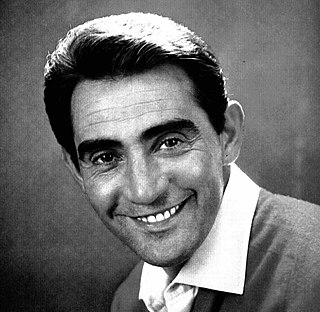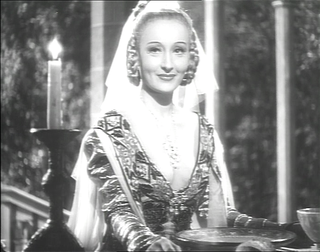
Vittorio De Sica was an Italian film director and actor, a leading figure in the neorealist movement.

Cesare Zavattini was an Italian screenwriter and one of the first theorists and proponents of the Neorealist movement in Italian cinema.

Sergio Tòfano was an Italian actor, director, playwright, scene designer and illustrator.

Italian neorealism, also known as the Golden Age, is a national film movement characterized by stories set amongst the poor and the working class. They are filmed on location, frequently with non-professional actors. They primarily address the difficult economic and moral conditions of post-World War II Italy, representing changes in the Italian psyche and conditions of everyday life, including poverty, oppression, injustice and desperation.

Silvana Mangano was an Italian film actress. She was one of a generation of thespians who arose from the neorealist movement, and went on to become a major female star, regarded as a sex symbol for the 1950s and '60s. She won the David di Donatello for Best Actress three times - for The Verona Trial (1963), The Witches (1967), and The Scientific Cardplayer (1973) - and the Nastro d'Argento for Best Actress twice.

My Voyage to Italy is a personal documentary by acclaimed Italian-American director Martin Scorsese. The film is a voyage through Italian cinema history, marking influential films for Scorsese and particularly covering the Italian neorealism period.

Alessandro Blasetti was an Italian film director and screenwriter who influenced Italian neorealism with the film Quattro passi fra le nuvole. Blasetti was one of the leading figures in Italian cinema during the Fascist era. He is sometimes known as the "father of Italian cinema" because of his role in reviving the struggling industry in the late 1920s.

Walter Annicchiarico, known as Walter Chiari[ˈvalter ˈkjaːri], was an Italian stage and screen actor, mostly in comedy roles.

Massimo Girotti was an Italian film actor whose career spanned seven decades.

Antonio Pietrangeli was an Italian film director and screenwriter. He was a major practitioner of the Commedia all'italiana genre.
The Nastro d'Argento is a film award assigned annually, since 1946, by Sindacato Nazionale dei Giornalisti Cinematografici Italiani the association of Italian film critics.

Bellissima is a 1951 Italian neorealist drama film directed by Luchino Visconti and starring Anna Magnani, Walter Chiari and Tecla Scarano. The film is a satire of the postwar Italian film industry, and particularly the dreams of stardom encouraged by the neorealist movement which plucked out ordinary members of the public to appear in productions. Bellissima is the only feature film in Visconti's oeuvre with a predominantly comic tone. It was not a box office success.

Clara Calamai was an Italian actress.

Franco Interlenghi was an Italian actor.

Suso Cecchi D'Amico was an Italian screenwriter and actress. She won the 1980 David di Donatello Award for lifetime career. She worked with virtually all of the most celebrated post-war Italian film directors, and wrote or co-wrote many award-winning films—among them:

Me, Me, Me... and the Others is a 1966 Italian comedy film directed by Alessandro Blasetti. For this film Blasetti won the David di Donatello for best director.
Cineriz was an Italian media company, involved primarily in the production and distribution of films, founded in the early 1950s by the businessman Angelo Rizzoli. The company catalogue counts also many films directed by Federico Fellini, Gillo Pontecorvo, Luchino Visconti, Michelangelo Antonioni, Pier Paolo Pasolini, Pietro Germi, Roberto Rossellini and Vittorio De Sica.
The list of the 100 Italian films to be saved was created with the aim to report "100 films that have changed the collective memory of the country between 1942 and 1978".

Carlo Montuori was an Italian cinematographer and cameraman.


















